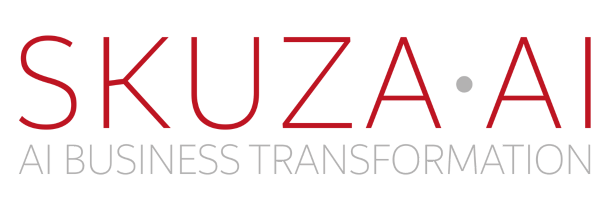The use of artificial intelligence (AI) in multi-factor authentication is a potential game changer for online security. While traditional methods of authentication like passwords and PIN codes are still used by many organizations, they have become increasingly easy to hack. Additionally, fraudulent activity has become more sophisticated, making it difficult for even the most vigilant users to keep up.
Multi-factor authentication (MFA) is a security system that requires more than one method of authentication from independent categories of credentials to verify the user’s identity. This makes it much more difficult for hackers to gain access to sensitive information, as they would need to obtain multiple different types of credentials.
Organizations that have implemented MFA have seen a significant reduction in churn, as well as an increase in customer satisfaction. The use of AI in MFA can further improve security and reduce fraudulent activity.
AI-based MFA systems are able to learn and adapt over time, making them more effective at detecting and stopping fraudsters. Additionally, AI can be used to verify the identity of users in real-time, making it impossible for hackers to spoof their identity.
Organizations that are looking to improve their security and reduce churn should consider implementing an AI-based MFA system.
History of Cybersecurity and MFA
The history of cybersecurity is long and complicated, but a few key milestones stand out. Early on, the focus was on prevention, with the goal of keeping hackers out of systems altogether. This changed in the late 1990s when it became clear that hackers were inevitable and that the focus needed to shift to detection and response.
In the early 2000s, multi-factor authentication (MFA) began to gain traction as a way to improve security. MFA requires users to provide more than one form of authentication, usually different categories like something they know (a password), something they have (a phone), or something they are (biometrics).
The use of MFA has become more widespread in recent years as the need for better security has become more apparent. The Equifax breach in 2017 was a wake-up call for many organizations, and the use of MFA has been increasing ever since. As seen in the graph below, the MFA market in North America is predicted to continue growing well into 2025.
How AI can be used for MFA
Artificial intelligence (AI) can be used in a variety of ways to improve the security of MFA systems. AI-based systems are able to learn and adapt over time, making them more effective at detecting and stopping fraudsters. Additionally, AI can be used to verify the identity of users in real-time, making it impossible for hackers to spoof their identity.
One of the most promising applications of AI for MFA is behavioral biometrics. This is a type of authentication that uses artificial intelligence to verify the identity of a user based on their behavior. Behavioral biometrics can be used to track things like how a user types, how they hold their phone, and even their unique gait.
This data is then used to create a profile of the user that can be used for authentication. The benefit of this approach is that it is much more difficult for hackers to spoof their identity, as they would need to replicate the user’s behavior exactly.
Another way AI can be used for MFA is through the use of voice recognition. This technology is already being used by some companies, like Google, for customer service. However, it can also be used for authentication purposes.
Voice recognition systems are able to verify the identity of a user by the sound of their voice. This makes it much more difficult for hackers to gain access to sensitive information, as they would need to obtain the user’s voice recordings.
Organizations that are looking to improve their security and reduce churn should consider implementing an AI-based MFA system. AI-based systems are more effective at detecting and stopping fraud and can also be used to verify the identity of users in real-time. This method will make it much more difficult for hackers to gain access to sensitive information.
The benefits of MFA
Multi-factor authentication (MFA) is a security measure that requires users to provide more than one form of authentication. This usually takes the form of something they know (a password), something they have (a phone), or something they are (biometrics).
MFA is an effective way to improve security, as it makes it much more difficult for hackers to gain access to sensitive information. Additionally, MFA can also be used to verify the identity of users in real-time, making it impossible for hackers to spoof their identity.
Organizations that are looking to improve their security and reduce churn should consider implementing an AI-based MFA system. AI-based systems are more effective at detecting and stopping fraud and can also be used to verify the identity of users in real-time. This method will make it much more difficult for hackers to gain access to sensitive information.
When it comes to cybersecurity, artificial intelligence (AI) is a powerful tool that can be used in a variety of ways to improve security. AI-based systems are able to learn and adapt over time, making them more effective at detecting and stopping fraudsters. Additionally, AI can be used to verify the identity of users in real-time, making it impossible for hackers to spoof their identity.
Implementing MFA in your business
If you’re looking to improve your security and reduce churn, implementing an AI-based MFA system is a great choice. AI-based systems are more effective at detecting and stopping fraud and can also be used to verify the identity of users in real-time. This method will make it much more difficult for hackers to gain access to sensitive information.
When it comes to choosing an AI-based MFA system, there are a few things to keep in mind. First, you’ll need to decide which type of authentication you want to use. There are three main types of authentication: something the user knows (like a password), something the user has (like a phone), or something the user is (like biometrics).
You’ll also need to choose a provider that offers an AI-based MFA system. There are a few different providers on the market, so be sure to do your research to find the one that’s right for you. Some of the top companies include Auth0, Microsoft, and Google.
Finally, you’ll need to implement the system in your business. This usually involves integrating it with your existing authentication systems, like your password manager or customer service platform.
As seen in the graph below, the vast majority of businesses around the world do not have many cybersecurity experts. Therefore, implementing MFA is a safe and efficient way to secure your business. Once you’ve implemented an AI-based MFA system, you’ll be able to rest easy knowing that your sensitive information is safe and secure.
References

